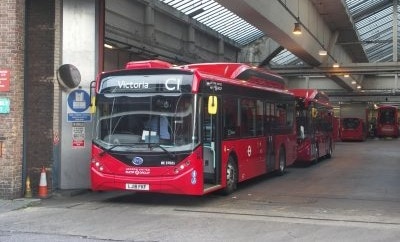Whether a workshop is looking to install mobile column lifts or fixed-post lifts, an alternative to purchasing or leasing new equipment is to buy pre-owned lifts that have a few years under their belt.
As well as cost, another reason that companies look to install pre-owned lifts in their workshop is that they can be used in wash bays or outdoors since they don’t contain modern electronics that are susceptible to water damage.
Unfortunately, there are some in the industry who will sell lifts on that have not been maintained correctly, don’t have a detailed service record and don’t carry any kind of warranty to give the buyer reassurance that they are:
a) going to do the job they are being bought for
b) will be safe to operate, and
c) will last in the medium- to long-term.
Nobody wants to spend money on lifts that regularly break down and need replacing within a matter of months.
With this in mind, it is important to understand precisely what you are getting for your money and what to look out for when specifying pre-owned lifts. Essentially, any lift will need to meet the requirements of your particular commercial vehicle workshop and be relatively future-proof – i.e., you need to think ahead about the range of vehicles you may have in your workshop in future years and make sure that the lifts you buy now will still be suitable then.
As with any lift, when buying pre-owned you will need to look at lifting capacity, lifting height, lifting speed and whether you prefer cable-free or cabled lifts.

Refurbishing and restoring
Most of TotalKare’s customers who buy heavy-duty vehicle lifts choose to buy brand new units but there is a significant proportion that opt for used vehicle lifts.
When old lifts are returned to TotalKare’s factory they are given the full refurbishment and restoration treatment. The lifts are steam cleaned and then stripped and assessed to ascertain what parts are required to restore them back to their optimum working condition, such as replacing load nuts and items such as motor gearboxes, switches and cables.
TotalKare’s experienced engineers rebuild the lifts as per the assessments and then carry out a function test under load to ensure the lifts are working correctly and to their stated safe working load (SWL). Going one stage further, TotalKare puts every lift that leaves its factory through a Report of Thorough Examination which is carried out by an independent engineer to ensure the rebuild meets the highest standards as well as LOLER requirements.
To illustrate the depth of this examination, here’s a list of what is checked:
- Carriage and safety nut limit switches
- Lifting carriage for damage and wear
- Screw shaft and bearings
- Lifting jack
- All cables and wiring for loose or broken connections
- Upper and lower limit switches
- All controls for correct operation.
Once all the checks and tests have been carried out, the vehicle lifts are cleaned, new decals are applied and the lifts are then ready to leave the factory, accompanied by a warranty on all the restoration work. Also, full operational training is given on-site when the lifts are delivered.
Regular maintenance
Of course, when buying a pre-owned lift it is worth remembering that some of the lifts on the used equipment market are over 35 years old, which means they are obviously going to be behind the times in terms of technological advances and their functionality will be limited in comparison to a brand new model.
TotalKare doesn’t just bring its own lifts back to life, it often finds itself refurbishing other manufacturers’ lifts which it has been asked to service or put through a Report of Thorough Examination. On occasions the lifts being inspected have proved to be unsafe and many parts need to be replaced at additional cost.
With any lift, one of the best ways of ensuring its longevity, reliability and safety is to have specialised engineers carry out regular maintenance and servicing. This applies to pre-owned lifts just as much as new units because health and safety issues do not discriminate between old and new. To ensure regular maintenance takes place it makes sense to sign up to a Service Level Agreement which provides the peace of mind of regular checks as well as reactive engineers who can be called out when required.
To conclude, it can certainly reduce a workshop’s overall costs to choose pre-owned heavy-duty vehicle lifts but it is important to make the right choice and think about considerations other than saving money.
Also, there will always be a market for used lifts and as technology advances the pre-owned lifts that become available will incorporate more of the features that workshops are benefiting from today.
So if you do choose to go down the pre-owned route make sure that they tick all the crucial boxes that we’ve covered in this article to keep your workshop as productive as possible and your workers safe.

























